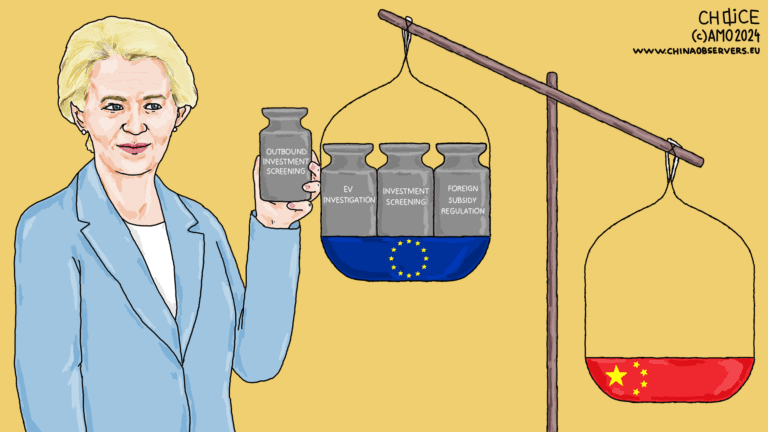#economic
Western Balkans’ Economic Cooperation with China: Between “Positive” Conditionality and Economic Coercion
While China has been using economic pressure to make countries around the world refrain from stepping over some of its “red lines”, the Western Balkan region serves as an example of a rather opposite…
Voice for CHOICE #36: Assessing the European Economic Security Package with Tobias Gehrke
In January 2024, the European Commission revealed five new initiatives aimed at advancing the implementation of its Economic Security Strategy, which was formally introduced in the summer of the previous year. The proposal seeks…
Lithuania-Taiwan Relations: A Temperature Check
While Lithuania positioned itself as an early stalwart of closer ties between Europe and Taiwan, the sustainability of relations between Vilnius and Taipei remains in question. This is mainly due to domestic political competition, the Baltic country’s unfulfilled economic ambitions, and recent pressure on the Ingrida Šimonytė government to normalize relations with China. As we enter an election year, it is crucial to examine factors that could undermine the continued expansion of ties between Lithuania and Taiwan.
Has Russia’s War Against Ukraine Damaged Poland’s Relations with China? Not as Much as You Think
Despite more hawkish rhetoric from Warsaw, practical cooperation between Poland and China has remained surprisingly unaffected by the outbreak of the war.
The Shifting Balance of Power and the Rise of Minilateralism: The Indo-Pacific and Beyond
Until recently, multilateralism formed the backbone of the post-war rule-based international order. However, multilateral organizations such as the United Nations have increasingly struggled to effectively address regional and global challenges. Dissatisfaction with the existing institutional framework, coupled with the intensifying superpower competition between China and the US, have instead brought about a worldwide rise in new minilitaral agreements.
Unlocking the Potential of EU-India Relations: The ‘China Factor’
India has traditionally championed the principles of strategic autonomy and non-alignment as core guiding tenets of its foreign policy. However, in recent years there have been marked shifts, most notably in its security and economic ties with the EU, that suggest a recalibration of India’s outlook. This development can be attributed to the growing influence of the ‘China factor’ in India’s calculations – a potential game-changer in EU-India relations.
Italy and the BRI: A Love Story That Never Started
To renew, or not to renew, that is the question.
Anticipating China’s New Paradigm for Central Asia
In what is the first instance of China hosting an offline summit with all five Central Asian states, the event is expected to bring significant results dwarfing other major players’ ambitions in the region.
Amid Heated European China Debate, Hungary Stays on a Beijing-friendly Course
While the EU-China relations are at a crossroads, Hungary’s relationship with the Middle Kingdom seems to be blooming. In the last few years, Budapest has signed a number of massive investment deals with Beijing, earning it the label of China’s European foothold. Although the economic results have sometimes come under question, the political consequences are undeniable.











